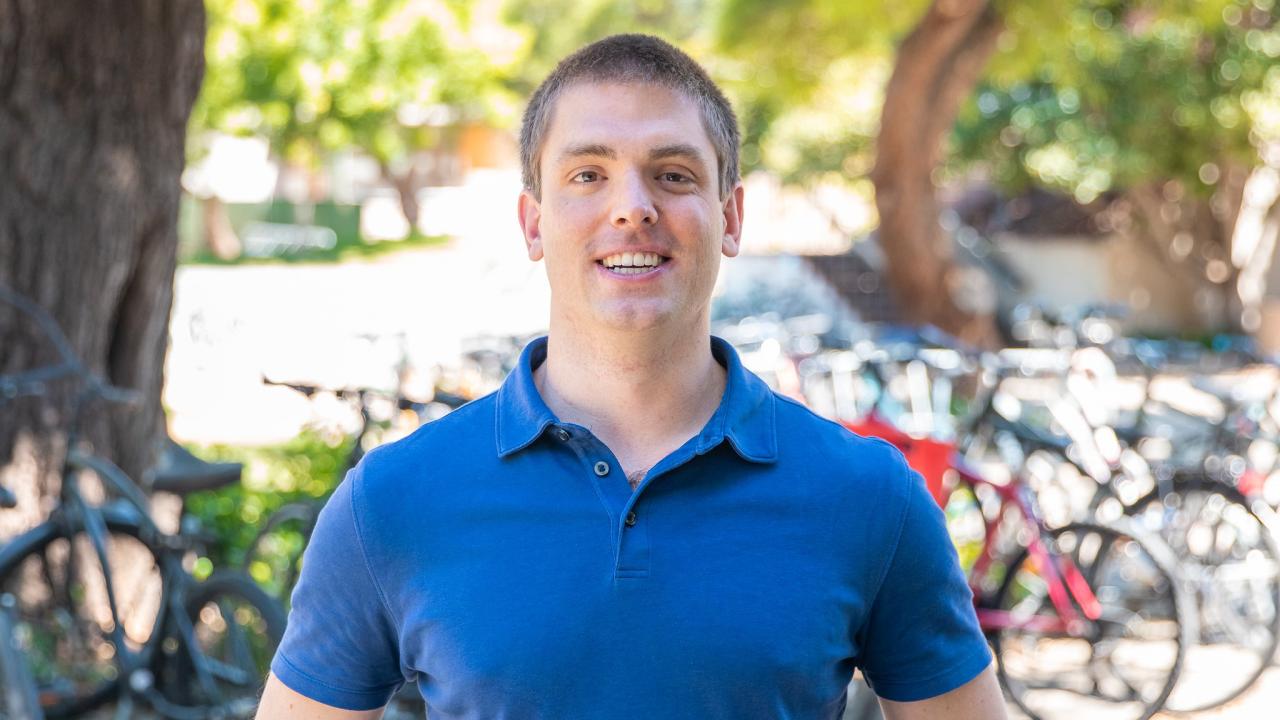
Optimizing Controls Systems with Matt Ellis
From cars to energy to factory floors and retail stores, control systems—systems that manage or regulate different devices or smaller systems—are a huge part of our everyday world. New chemical engineering assistant professor Matt Ellis works to make these systems run more efficiently and solve problems for industry.
“Control systems are fundamental to our daily life,” he said. “Most of those devices we use are some closed-loop feedback that’s taking measurements of the environment, making decisions, implementing those decisions, getting new updates and making new decisions.”
Ellis specializes in model predictive control, where he models systems to study their efficiency and make predictions about their short or long-term future to make adjustments in the present.
“If we’re going to make control decisions, there’s a need to look into the future to avoid myopic decision-making,” he said. “Think of it as an investment.”
Focused on industry
Ellis joins UC Davis after almost four years in industry at an energy systems company. He saw firsthand the impact academic research had on his company’s production and efficiency and is excited by the chance to contribute from the other side.
Even simple systems monitoring can increase a company’s efficiency by a significant amount, something he discovered as an undergraduate intern and what led him to pursue systems engineering in the first place. It’s something he picked up again while in industry—he began to find problems in the processes he used at work and took them home to research ways to improve them.
“That was sort of my hobby,” he said. “I was applying this stuff in my day job, but when I went home, I was doing research.”
Optimizing systems can impact a huge range of industries, though Ellis has focused mostly on petrochemical processes and energy systems to this point.
“It’s the same math at the end of the day, whether you apply it to reactors or buildings or autonomous vehicles,” he said. “What keeps me motivated are these different applications.”
Excited to collaborate
Ellis didn’t know what chemical engineers did when he went to college, but he knew he liked math and chemistry in high school, so it seemed like a natural fit. It ended up working out, as he received his B.S. in Chemical and Biological Engineering at the University of Wisconsin–Madison and his Ph.D. in Chemical and Biomolecular Engineering at UCLA.
When he decided to return to academia, he was drawn to UC Davis’ strong systems engineering program and the fact that many faculty had also come from industry.
“There’s a ton of potential for collaboration here, both within the chemical engineering department and across the engineering community,” he said.
In his spare time, Ellis is a drummer, outdoorsman and avid Linux user and developer. “I have more computers than my wife thinks one person needs,” he laughs.
As he begins his time at UC Davis, Ellis is excited to establish himself, collaborate with his new colleagues and make a difference in industry.
Ellis began July 1 and will start setting up his research group this fall.
